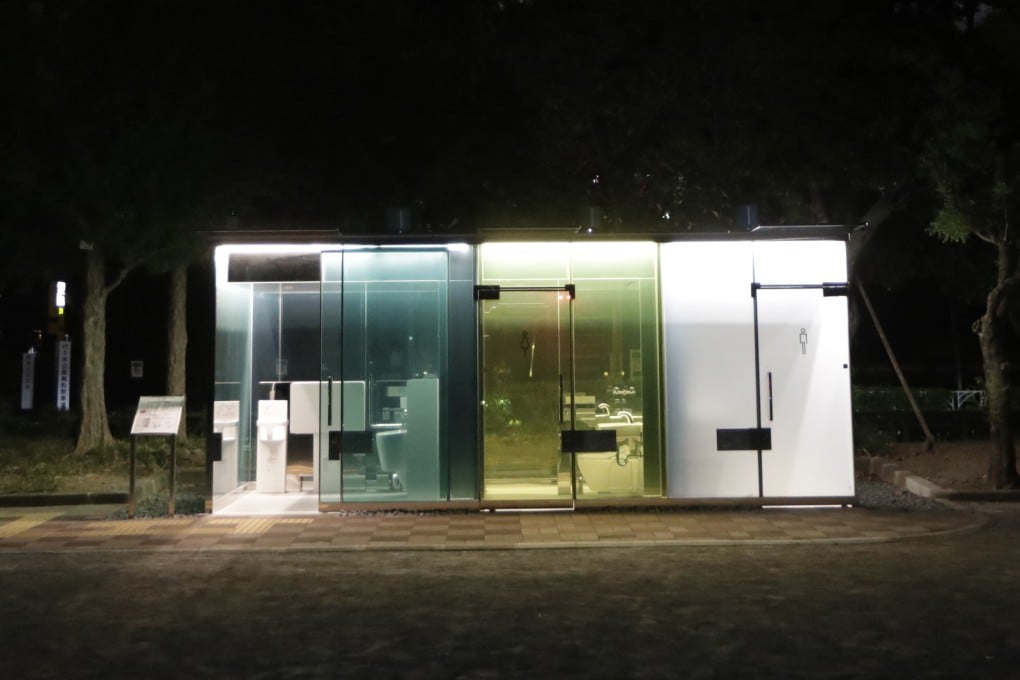Destinations known | Tokyo’s transparent toilets – stroke of clear genius or sheer madness?
- Designed by Pritzker Prize-winner Shigeru Ban, the see-through loos give users a ‘weird feeling of being on display’
- Those brave enough to venture forth will have to trust that the not-always ‘smart’ glass has frosted from the outside when the latrine is locked

Designed by Pritzker Prize-winning architect Shigeru Ban – best known for using paper tubes to provide shelter for those displaced by disasters both natural and man-made – the see-through loos have been installed at two sites in Shibuya district as part of The Tokyo Toilet project, which aims to up the outhouse ante with support from the Shibuya City government and the Shibuya Tourism Association.
The reason for the transparency is clear: it allows would-be wazzers to consider the hygiene of the WC while ensuring that no one is hiding in wait (a genuinely terrifying prospect). If the coast is deemed clear and clean, then those inclined towards adventurous ablutions can enter and find sweet relief, trusting that the sheer stall becomes opaque as soon as the door is locked.
Because, of course, this is Japan and no matter how hi-tech the toilet, spending a penny – or more – is personal. This is the country, after all, that added a running-water soundtrack to its lavatories to mask noises that might naturally occur when nature calls.

01:23
Japan’s transparent restrooms hope to dispel stereotypes of dirty public toilets
But would you be brave enough to try the transparent toilet? According to CNN Travel, part of the “thrill” of using these bathrooms “is that once inside, you can’t tell if the glass is frosted or not”. That the stalls are separated by mirrored walls only adds “to the weird feeling of being on display”.
